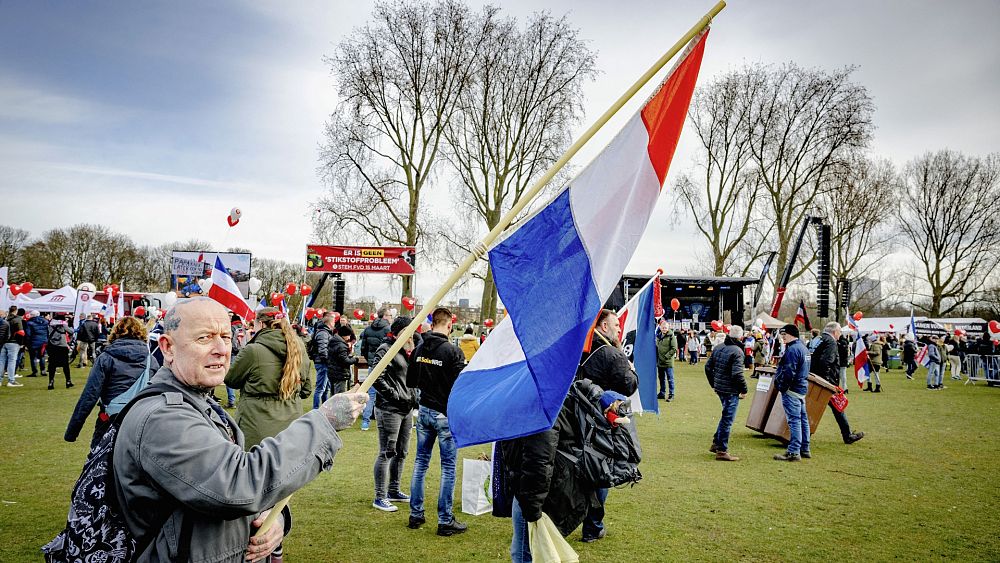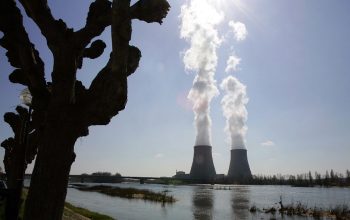
Farmers in the Netherlands have attracted global attention by blocking roads, dumping manure and protesting outside the houses of politicians.
On Saturday, fresh protests took place in The Hague ahead of provincial elections set to take place on 15 March which will appoint members of the Dutch Senate.
More than 10,000 farmers joined the action, many flying the country’s flag upside down in a symbolic representation of the movement.

They say that the new regulations to cut nitrogen emissions have been exaggerated and current proposals to solve the problem are unfair and ineffective.
Now a new political force is rising in the country in the wake of these protests: the BoerBurgerBeweging (BBB) or Farmer-Citizen Movement. The party was founded in 2019 by agricultural journalist Caroline van der Plas – currently its only MP.
Why are Dutch farmers protesting?
Prime Minister Mark Rutte has committed to halving nitrogen emissions in the Netherlands by 2030. Levels of nitrogen oxides in the country’s air and water are currently higher than EU regulations allow.
A lot of these emissions come from the waste produced by the country’s more than 100 million cows, pigs and chickens. Despite its small size, the Netherlands is the world’s second-biggest exporter of agricultural products by value behind the US.
To cut nitrogen emissions, the government plans to reduce livestock numbers by a third and it could mean that some farmers face compulsory buyouts.
Despite many in rural regions acknowledging the significance of the climate crisis, Rutte has been criticised for the sudden announcement of these agriculture plans.
Why is the BBB growing in popularity?
The upcoming elections will appoint members of the Dutch Senate from across the country. These representatives and regional governments are responsible for translating goals like the plan to reduce nitrogen emissions into real plans.
The latest polling indicates that BBB could take around 12 per cent of the vote.

The government’s plans to reduce the number of livestock in the Netherlands and close some farms have caused the party to soar in popularity – especially in rural areas. In the north and east of the country, polling indicates it could even become the largest political party.
If the BBB wins enough seats in the Dutch Senate, it could form an alliance with far-right parties to block these new nitrogen emission regulations.


